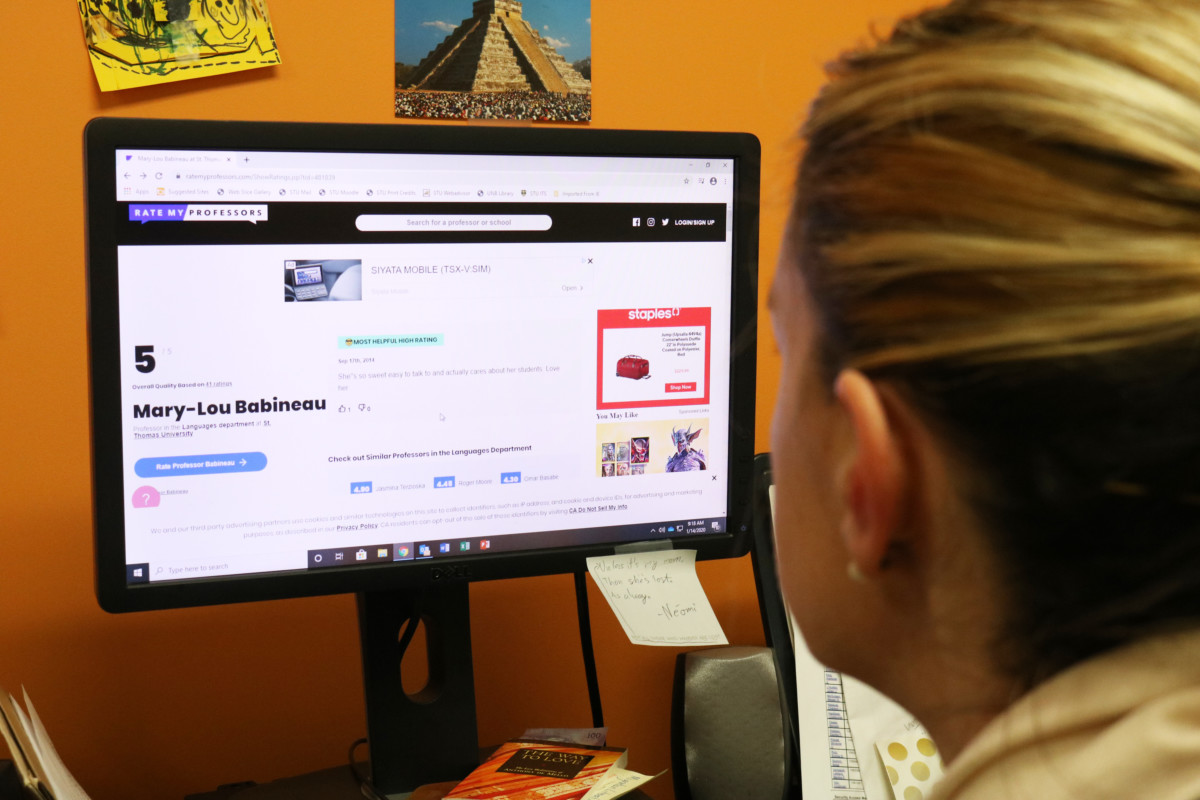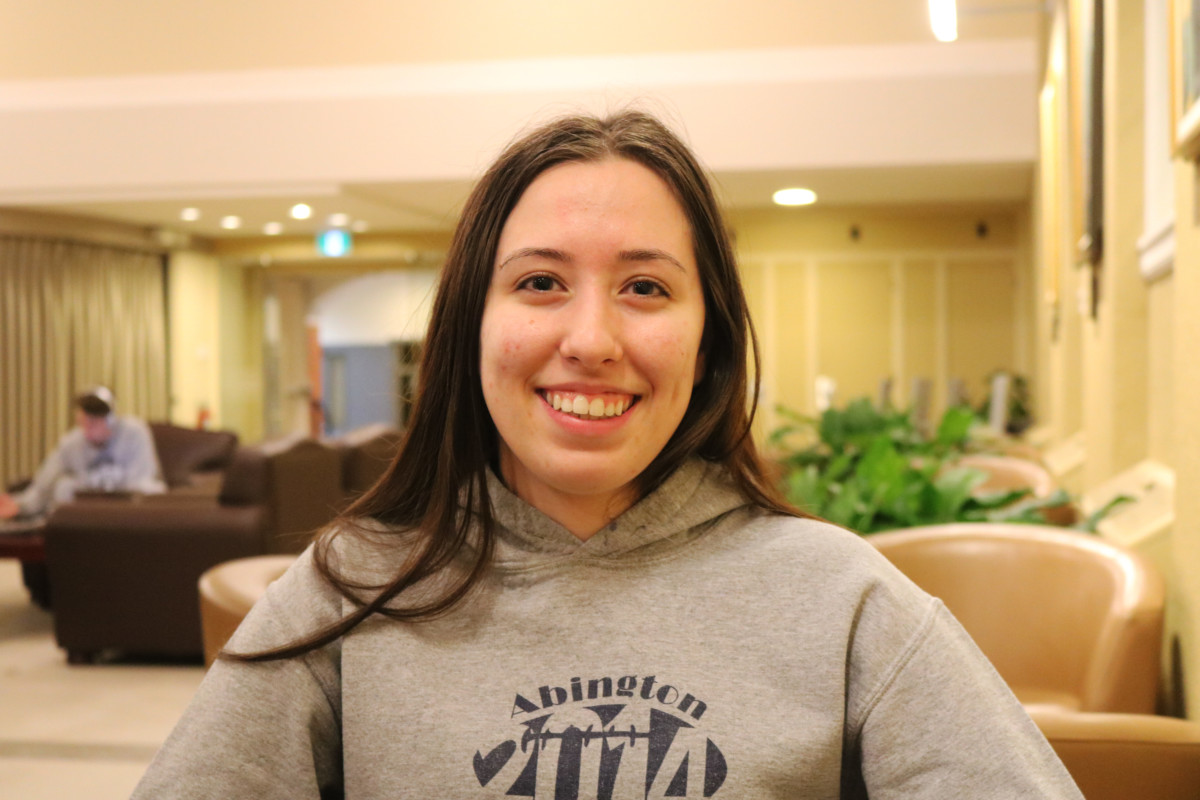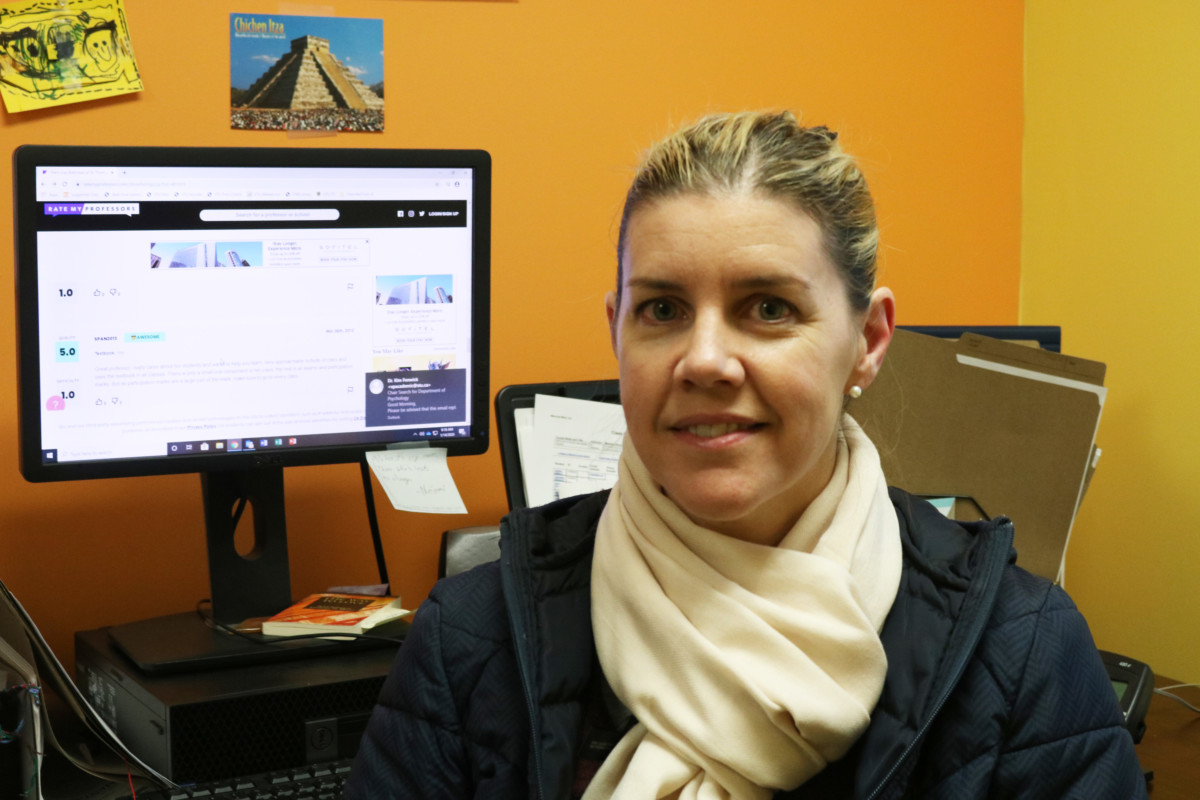

The first time Taya Doucet heard about a website called Rate My Professor was when she attended Petitcodiac Regional High School. During her Grade 12 year, grads would send videos with advice to current students. One of those recommendations was Rate My Professor.
“I love the app in terms of balancing my schedule,” Doucet said. “It made it a lot easier.”
Rate My Professor is a website where students can review their professors through anonymous posts. Professors are rated out of five, one being the worst and five being the best. Most professors receive a mix of good and bad reviews.
Doucet first used the website to check reviews of professor Dawne Clarke. She said she always checks the website before choosing her classes.

Clarke was set to teach Doucet Intro to Criminology in her first semester. The comments said she was a hard professor but the class was rewarding. After taking the class, Doucet agrees.
“I love her,” Doucet said. “But she is a hard marker.”
Doucet said Clarke reminds her of her mother because of her personality. She said Clarke shows she cares for her students and she’s there for them.
Mary Lou Babineau-Rosada, a Spanish professor with a five-out-of-five rating, said she’s concerned about students choosing courses based on the sites comments.
“These comments have nothing to do with the content of my courses or with how well students are learning,” Babineau-Rosada said.
Babineau-Rosada, who’s worked at STU for 16 years, has heard students and other faculty members say some of the negative comments are unfair.


While the website may suggest some classes are easier than others, Babineau-Rosada said challenges are important for intellectual growth.
“I would argue [that] good learning has a high level of discomfort associated with it,” she said.
Mark Tunney, a journalism and communications professor with a rating of 3.7 out of five, said the last time he checked was 12 years ago when he first began teaching.
“I don’t go [to the website] because I don’t want to hear cheesy things,” Tunney said.
Instead, Tunney reads the comments from the in-class evaluations at the end of the semester.
“I’m the teacher that always wants to know what people think, what they thought about the class or how I could do things better,” he said.
Tunney said one first-year student told him the website said he was a hard marker, but after taking one of Tunney’s classes they found he wasn’t too difficult after all. Tunney said he used to be a tougher marker than he is now. He changed his grading style to be more in line with the university’s averages.
Tunney said first-year students might be more inclined to use Rate My Professor because they don’t know any of their professors yet. Still, he isn’t bothered by students using the website.
“If someone decided that they don’t want to take my course because someone said I was a hard marker, then whatever.”
